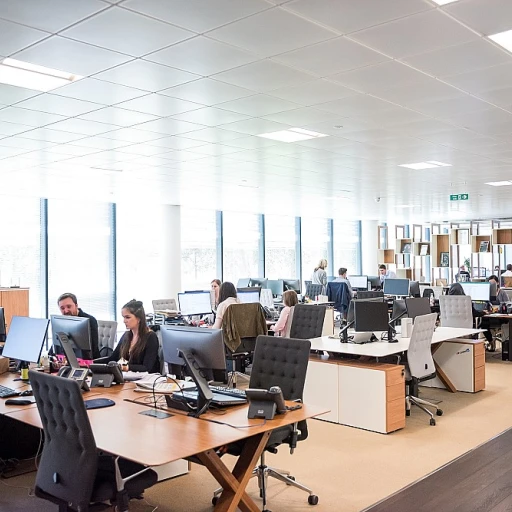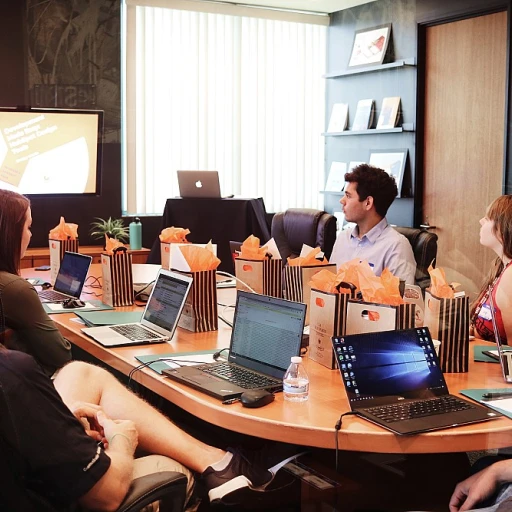
Understanding the Importance of Candidate Experience
The Significance of a Positive Candidate Experience
In today's competitive job market, the importance of a positive candidate experience cannot be overstated. This is particularly significant in industries like retail and hospitality, where high turnover rates are common, and employee satisfaction can directly impact customer service and overall business success. Creating an engaging and efficient candidate experience is not just about filling positions quickly; it's a vital aspect of talent acquisition strategy. Candidates, especially in hospitality and retail sectors, often judge a company based on their experience during the hiring process. A seamless and respectful application process reflects well on the company, even if the candidate doesn't land the job. From recruitment to onboarding, every stage in the recruiting process plays a critical role in shaping the perception of your brand among potential employees. Effective use of technology, such as applicant tracking systems and video interviews, can streamline the process, providing quick feedback and maintaining transparency. Ultimately, prioritizing candidate experience can lead to better hiring outcomes, higher quality talent acquisition, and a robust staffing solution. This is increasingly important for sectors like retail hospitality, where customer satisfaction is directly linked to employee motivation and engagement.Identifying Challenges in Retail and Hospitality Hiring
Recognizing the Unique Hiring Landscape
In the ever-evolving domains of retail and hospitality, organizations often face distinct challenges in their hiring processes. These industries are not only known for their dynamic environments but also for their high turnover rates. This can make finding and retaining the right talent a daunting task for hiring managers. The hospitality and retail sectors are heavily reliant on efficient staffing solutions, which necessitates a well-thought-out recruitment process that enhances candidate experience.For instance, the retail industry often requires a high volume of hires in a short span due to seasonal demand fluctuations. This calls for an accelerated recruiting process which sometimes compromises on candidate experience. On the other hand, the hospitality industry demands a high standard of customer service, making the quality of hire as important as the speed of recruitment. This balance between time-to-hire and maintaining a high-quality candidate experience is a fine line to tread.
Overcoming Barriers to Effective Recruitment
The challenges in the recruitment process are often exacerbated by the need for specific skillsets in retail and hospitality workers. Both the retail and hospitality industries require workers who can excel in customer service roles, and this need drives the hiring strategies. Despite the availability of talent, finding candidates with the right background and skillset often poses a significant challenge.- Volume and Speed: High application volumes necessitate swift screening and assessments, which could potentially overlook the finer details of a candidate's profile.
- Background Checks: The hospitality industry, in particular, demands thorough background checks, increasing the time taken to finalize hiring decisions.
- Skill-Specific Challenges: Diverse and unique requirements often result in a longer recruitment process to ensure the right fit for the role.
For more insights on overcoming these challenges and their impact on candidate experience, take a look at this detailed exploration on talent acquisition specialists who play a pivotal role in navigating these complexities.
Implementing Effective Pre-Hire Assessments
Maximizing the Efficiency of Pre-Hire Evaluations
To enhance candidate experience amidst the demanding needs of the retail and hospitality sectors, it is crucial to streamline the pre-hire assessments process. By implementing thoughtful and effective pre-hire evaluations, the recruitment process can become both efficient for staffing needs and satisfactory for candidates seeking opportunities.
Pre-hire assessments serve as a pivotal element in identifying the best fit for retail and hospitality industry roles, ensuring that candidates possess the necessary skills and competencies. As hiring managers and recruitment teams navigate the selection process, deploying structured assessments can provide clarity and reduce turnaround time.
- Targeted Screening: Robust assessments enable targeted screening by focusing on relevant skills and competencies critical for roles in customer service, hospitality staffing, and talent acquisition.
- Background Checks: Conducting thorough yet efficient background checks as part of pre-hire assessments ensures credibility and reduces future discrepancies, enhancing the overall candidate experience.
- Leveraging Technology: Utilizing video interviews and applicant tracking systems can streamline the assessment process, provide real-time insights, and foster a seamless application process. This technological integration demonstrates to candidates that the organization values innovation and efficiency in its hiring process.
Ultimately, the goal is to create a process where candidates not only showcase their skills effectively but also feel valued throughout their interactions. Critical to this approach is understanding your total compensation package, which considers the complete experience and perceived value from the candidates' perspective. By focusing on streamlined assessments, organizations can better position themselves to make informed hiring decisions and maintain a competitive edge in the recruitment landscape of retail and hospitality.
Leveraging Technology for a Seamless Application Process
Streamlining the Application Journey Through Technology
Incorporating technology into the hiring process can significantly enhance the candidate experience, particularly in the retail and hospitality sectors. These industries are known for their fast-paced environments and high turnover rates, making efficient and effective recruitment all the more crucial. Modern recruitment technologies now offer a variety of tools to simplify the application process for both candidates and hiring managers. By integrating applicant tracking systems (ATS), companies can manage a high volume of applications with ease and precision. This ensures that no potential talent slips through the cracks, and candidates are kept informed throughout their journey. Video interviews have also become a staple in the hospitality staffing and retail recruitment landscape. They offer a convenient initial screening solution, saving both time and resources for all parties involved. Candidates appreciate the flexibility and convenience of interviewing from locations that suit them, which reflects positively on their impression of the organization. Another key technological advancement is the use of real-time data analytics in assessing candidate suitability. This allows hiring managers to make informed decisions based on comprehensive insights from pre-hire assessments and interviews. Technologies like AI-driven background checks further streamline the staffing solutions processes, ensuring that both the retail and hospitality recruitment sectors maintain high standards of oversight without compromising on speed. Ultimately, by leveraging these innovations, the application process becomes smoother, creating a positive candidate experience and enhancing the overall talent acquisition strategy. The seamless integration of technology not only benefits the industry in terms of efficiency but also underscores a company's commitment to modernity and candidate-centric approaches in its recruitment efforts.Training Hiring Managers for Better Candidate Interaction
Empowering Hiring Managers for Enhanced Candidate Interactions
In the retail and hospitality industries, hiring managers play a pivotal role in shaping the candidate experience. Their interactions with potential hires can significantly impact the perception of the company and influence the decision-making process of candidates. Therefore, training hiring managers is crucial to ensure they provide a positive and professional experience. Effective training programs should focus on several key areas:- Understanding the Candidate Journey: Hiring managers need to be aware of the entire recruitment process, from initial contact to final offer. This understanding helps them empathize with candidates and address their concerns effectively.
- Communication Skills: Clear and respectful communication is essential. Training should emphasize the importance of timely responses and providing constructive feedback, which can enhance the candidate's perception of the company.
- Interview Techniques: Managers should be equipped with skills to conduct interviews that are both informative and engaging. This includes asking relevant questions and creating a comfortable environment for candidates to showcase their talents.
- Bias Awareness: Unconscious biases can affect hiring decisions. Training should include strategies to recognize and mitigate these biases, ensuring a fair and equitable recruitment process.
Measuring and Improving Candidate Experience
Evaluating and Refining the Candidate Experience
Improving the candidate experience in the retail and hospitality sectors requires a comprehensive approach that centers around feedback, analysis, and continuous improvement. Here’s how to measure and enhance this crucial aspect of the recruiting process:- Collect Feedback: One of the most effective ways to gauge candidate experience is through direct feedback. Surveys and post-interview evaluations can reveal insights into what candidates value in their interactions with hiring teams. This feedback can also highlight areas where the process may be falling short.
- Utilize Metrics: Analyze quantitative metrics like "time to hire," "application completion rates," and "conversion from screening to hire." These metrics can provide a tangible measure of how efficient and effective the hiring process is, and uncover potential bottlenecks.
- Benchmarking Against Standards: Compare your hiring process standards with industry benchmarks, especially within retail and hospitality, where pace and volume are critical. This can help identify discrepancies and align recruitment practices with industry expectations.
- Incorporate Technology: Leverage applicant tracking systems and other recruitment technologies to track and better understand candidate engagement throughout the hiring cycle. These tools can help maintain an organized database of candidate interactions for ongoing analysis.
- Regularly Review Processes: Consistently revisiting and adjusting hiring processes as needed ensures they remain efficient and candidate-friendly. Training hiring managers to be adaptable and proactive in their approach can have a significant positive impact in refining every aspect of candidate interaction.













